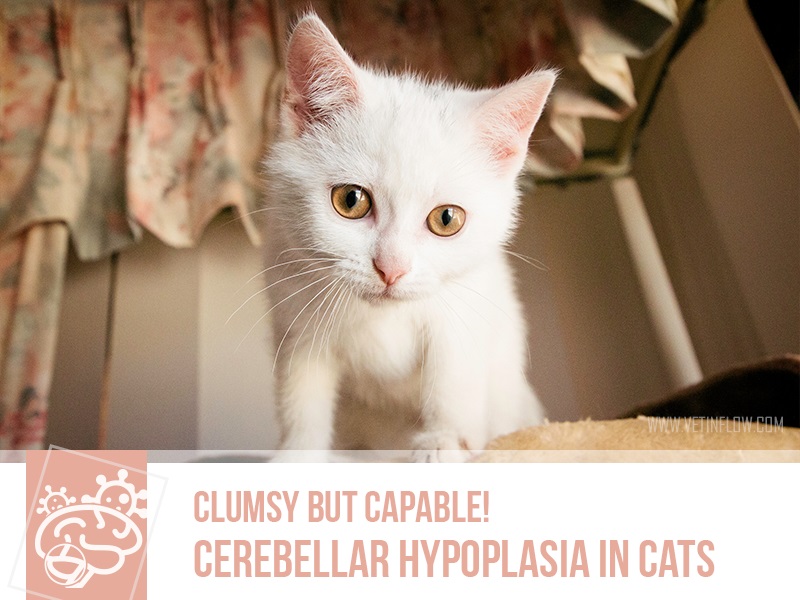
Clumsy but capable! Cerebellar Hypoplasia in cats

Cats and kittens come in many shapes, sizes and abilities! One particular set of our feline friends are cats that have a congenital dysfunction in the area of the brain responsible for balance and walking.
These kitties have a cerebellum that was not properly developed during pregnancy. Most of the time this happens because of an infection with Feline panleukopenia virus, the same virus that causes distemper in cats. If the queen gets infected with this virus during pregnancy, it will interfere with the normal development of the cerebellum in her kittens. Not all kittens are affected the same way, so what might happen is that a litter can have babies that are severely affected and kitties that don't seem to have any issues.
The cerebellum is the area of the brain that helps animals walk and move correctly. Knowing this, it means that cats with this disease have issues getting around and doing more precise movements. You might see your kitty tremble a lot, have difficulty reaching the bowl to eat and look really clumsy walking but don't worry because it doesn't hurt!
The good news about cerebellar hypoplasia is that these purring partners can have great quality of life and a normal lifespan. This disease is not progressive, painful or contagious and with time, they can even learn to compensate for these issues.
Living with a cat with cerebellar hypoplasia might require some special attention, depending on the severity of the problem. They have a normal lifespan but are more prone to accidents, like not handling stairs well, falling from high places, requiring special litter boxes or hitting sharp corners on furniture.
We leave you with some top tips on how to make life for your lovely, clumsy cat a little easier: Carpeted floors help them get better traction, try putting soft bumpers on your furniture so they don't get hurt when they fall or have a litter box with high sides so they have the extra support.
Keep an eye out for ways you can improve the life of your feline friend with cerebellar hypoplasia and they will surely save many purrs for you.
Would you like to know more about cats? Check our Feline Courses:
Feline courses
Published: 24 Feb 2017
Read the previous article: Canine pancreatitis - When your dog's pancreatic enzimes run wild!

